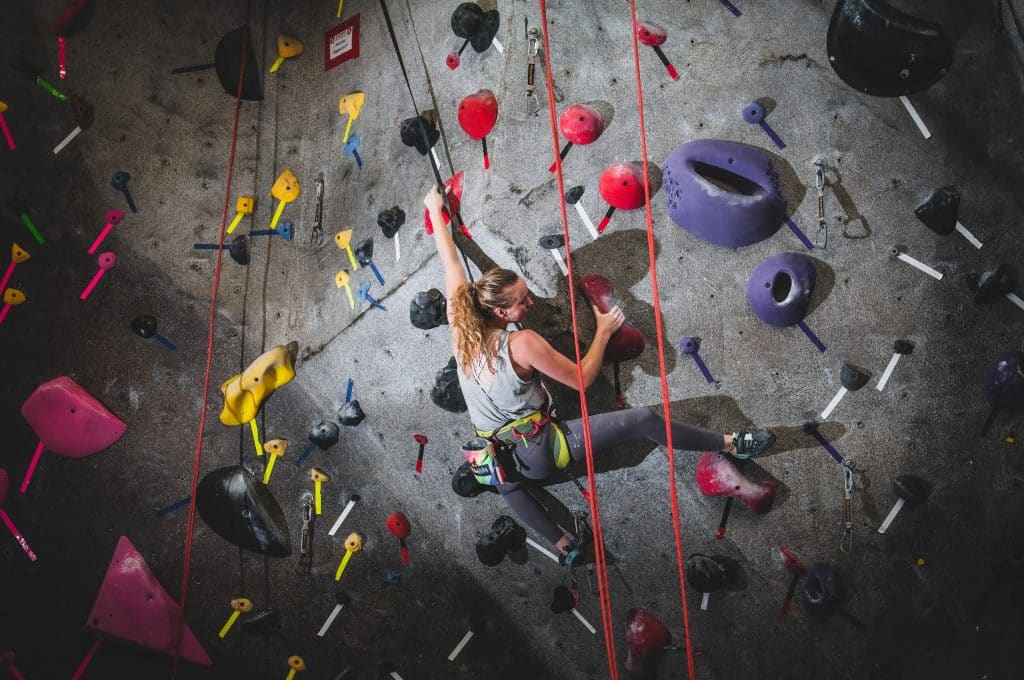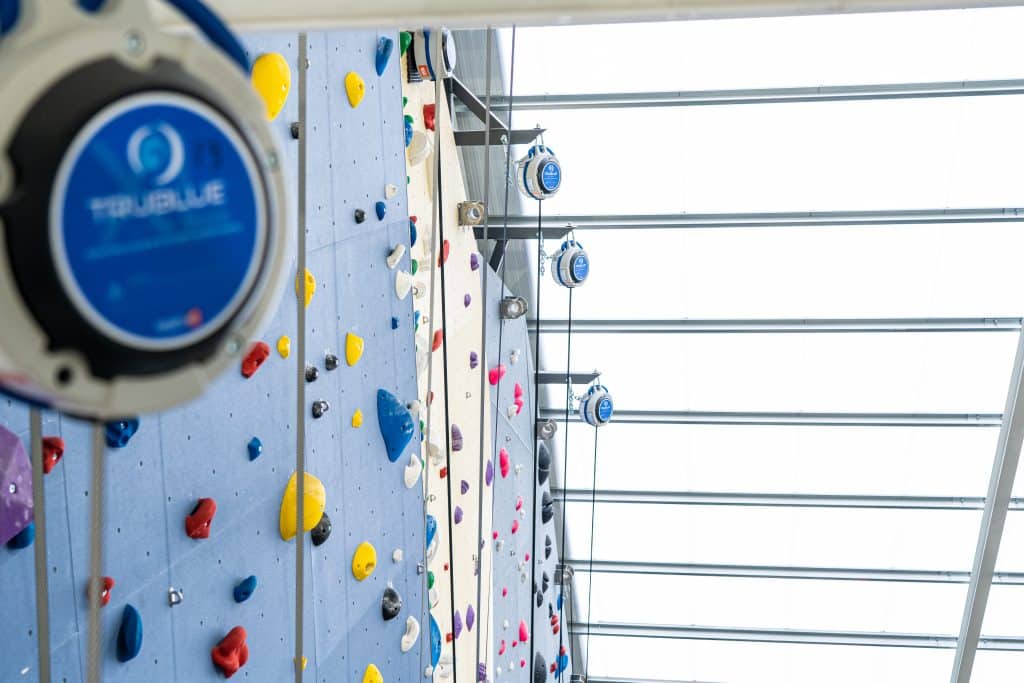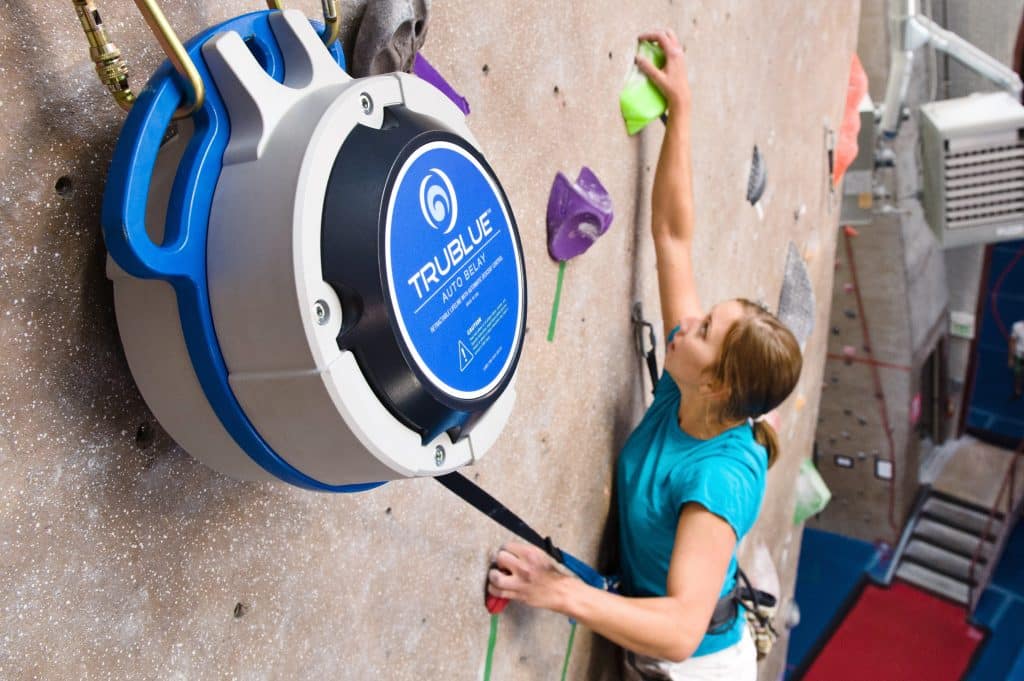Want to get your students active, teach them valuable life lessons, and give them an opportunity to fall in love with the outdoors? Consider building a school rock climbing wall at your K-12 school so your students can enjoy the many benefits climbing has to offer. There's a lot to think about to think about when you're trying to get a wall built at your school, but this post will cover all the basics you need to know.
Benefits of School Rock Climbing Walls
Gets kids active
Childhood obesity is a prevalent concern in today's society. Getting kids interested in sports is a direct and effective way to combat this epidemic, and climbing offers a full-body workout. A common misconception is that climbing only works your upper body. Any seasoned climber will tell you that using your legs and feet is a huge part of climbing effectively. Longer climbing routes will work on cardio and will build endurance. The best part is that climbing is such a fun and engaging activity that most kids forget they are also getting in a workout!
Improve Memory and Cognitive Skills
Climbing can be very mentally stimulating. A study from the University of Northern Florida found that climbing can improve your working memory. Working memory is your short-term memory. The classic example of working memory is being able to do a math problem in your head without a piece of paper. Climbing requires focus to find the right body position, balance, and movement to unlock the puzzle-like sequence to get up the wall. Students may struggle with some routes on the school rock climbing wall, but that's ok! They don't have to reach the top on the first try every time. That's part of climbing!
Build Confidence and Teach Goal Setting Habits
Half of climbing is mental, and because it's an individual sport, goals, and accomplishments are very personalized. For one person simply getting on the wall might be a huge breakthrough. Other peoples' goals might be to get to the top of the wall or finish a difficult route. It is very easy to measure success in climbing.
If you've recently achieved a goal, you know first-hand the confidence it instills. You don't even have to achieve a goal in order to get that confidence boost, simply taking steps toward achieving that goal can be a significant confidence booster. Climbing is a great opportunity to teach students valuable goal setting techniques and increase their confidence at the same time.
Teach Risk Management
A school rock climbing wall is a great opportunity to teach students the importance of responsibility and risk management skills while in a safe and supervised environment. Teaching skills like belaying and rappelling provides an opportunity to cover safe climbing practices, gives students an opportunity to overcome their fears, and is another confidence boost that climbing can provide.
Create Lasting Relationships
One of the basic skills required for climbing is belaying. Belaying is when a climber's partner is on the other end of the rope and manages the rope to protect the climber in the event of a fall. It's an easy skill to learn but is extremely important, requiring lots of trust to know that your belay partner is going to catch you. Belaying also requires effective communication, another beneficial skill for students.
Even young kids are able to learn belaying skills and can become competent belayers. Your school's rock climbing wall will need a process for teaching, testing, and supervising young belayers, but it's a great experience for students.
Types of School Rock Climbing Walls
Sport Climbing Wall
Sport climbing walls are the same walls that you would see in a commercial climbing gym. These walls can be as short as 30 feet or they can be as tall as 60 feet and up. Sport climbing walls offer the most versatility and allow you to take advantage of all the benefits climbing has to offer. They let you teach skills like belaying and lead climbing. Sport climbing walls are great for kids and teens alike. If you can afford it and fit it, a full-size sport climbing wall is a great option for your school.
Adding auto belay devices will let students utilize the wall before learning how to belay or if they don't have a climbing partner. For that reason, auto belays will increase participation and make sure that your wall is being used consistently. Auto belays are also a great training tool. They can be a backup for someone learning how to belay or lead climb. It can also be used in training regiments in order to get more routes in more quickly.
Bouldering Area
Bouldering areas are shorter walls with landing pads as the main safety mechanism. Standard bouldering walls only go as high as 15 feet. Bouldering walls are different than Traverse Walls in that they allow vertical climbing and have features such as overhangs, roofs, dihedrals, aretes and so on. Both differences make it so that older kids and teens are more likely to keep coming back. Adding an easier section to the bouldering area makes it accessible to students of all ages. Bouldering walls are a great option if you don't have the height and room for a full sport climbing wall.
Traverse Wall ®
The Traverse Wall is the simplest of the different kinds of walls. They are a cheap option and can be installed in areas where a bouldering area or sport climbing wall wouldn't make sense. This could be a great option if you want a climbing wall in your gymnasium. Just as their name implies, Traverse Walls are meant to be climbed horizontally instead of vertically. Usually, Traverse Walls just consist of flat panels without any significant features such as aretes or dihedrals. This simplicity makes them great climbing walls for kids. Although, a common issue with Traverse Walls is that they have a hard time retaining the attention of older kids and teens. Similarly, the simplicity and the lack of height makes it hard (if not impossible) to teach rock climbing techniques and safety procedures.
Next Steps
If you'd like to explore the option to build a rock climbing wall at your school, check out Head Rush partners in your area to find a builder. They can help you discuss size, design, cost, and more when deciding on what type of climbing wall will be best for your school. Your students will love it because climbing is such a fun activity, but you'll know about all the added physical and mental benefits of climbing!



